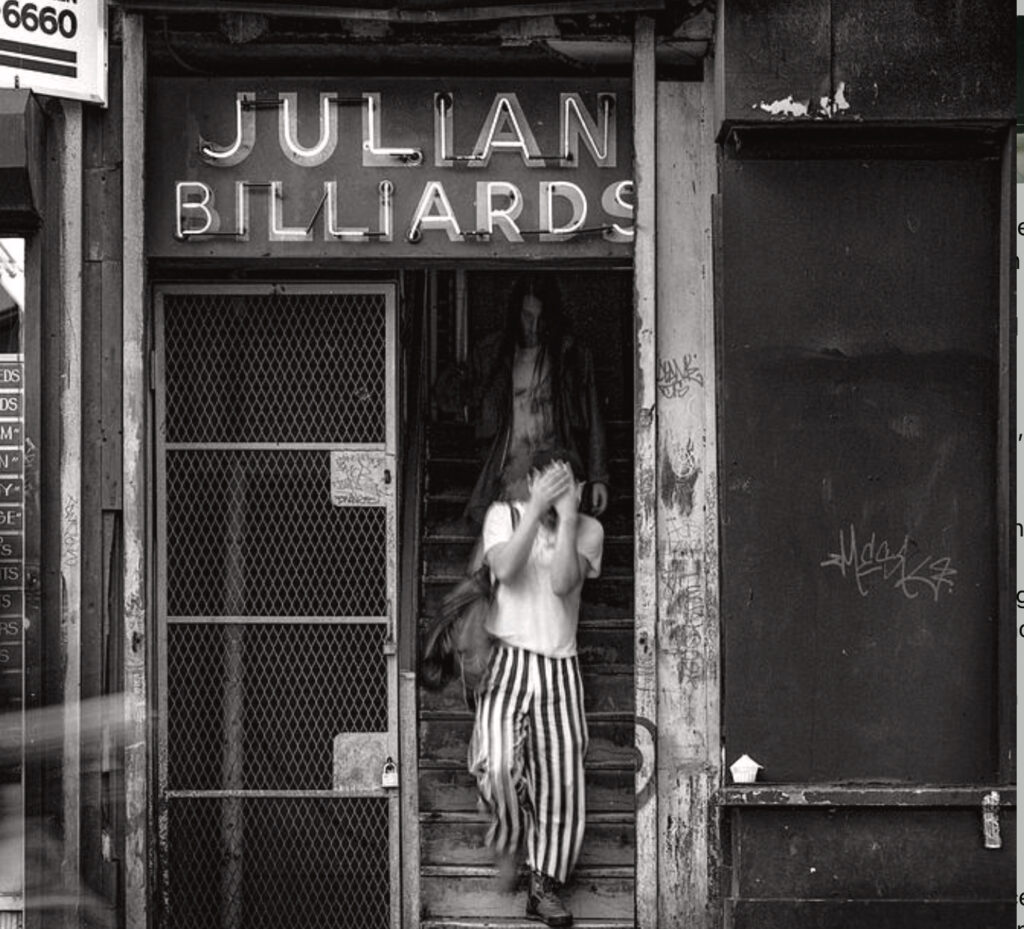In the bustling streets of New York City, where history and modernity intertwine, Julian’s Billiards stood as a testament to the enduring charm of classic American pastimes. Established in (1933) at 138 East 14th Street, Julian’s Billiards was more than just a pool hall; it was a cultural landmark that captured the essence of New York’s vibrant social scene. For 63 years, it remained under the stewardship of the same family, becoming a beloved institution that left an indelible mark on the city’s collective memory.
A Legacy Begins:
Julian’s Billiards opened its doors during the Great Depression, a time when New Yorkers sought solace and distraction from the economic hardships of the era. Its founder, Julian Graubart, envisioned a space where people from all walks of life could come together to enjoy the game of billiards. The location on East 14th Street, in the heart of Manhattan, made it easily accessible to a diverse clientele, from blue-collar workers to artists, intellectuals, and celebrities.
The pool hall quickly gained a reputation for its welcoming atmosphere and high-quality equipment. With over 30 pool tables, a large snooker table, and several billiards tables, Julian’s Billiards offered something for everyone, whether they were seasoned professionals or casual players. The cavernous, second-floor space was filled with the sounds of clicking balls, the hum of conversation, and the occasional burst of laughter, creating an ambiance that was both lively and intimate.
A Gathering Place for Pool Enthusiasts
Julian’s Billiards was more than just a place to play pool; it was a social hub where friendships were forged, rivalries were born, and stories were shared. The pool hall attracted a diverse crowd, reflecting the melting pot that is New York City. Professionals honed their skills on the tables, while amateurs learned the ropes from more experienced players. Celebrities, including actors, musicians, and athletes, were known to frequent Julian’s, adding to its allure and mystique.
The smoky atmosphere, a hallmark of the era, only added to the pool hall’s charm. Patrons would spend hours at the tables, engrossed in games of eight-ball, nine-ball, or snooker. The click-clack of the balls, the thud of the cue sticks, and the occasional cheer of victory created a symphony of sounds that became synonymous with Julian’s Billiards.
A Family Affair: The Graubart Legacy
For over six decades, Julian’s Billiards remained under the ownership of the Graubart family, a rarity in the ever-changing landscape of New York City. Julian Graubart’s dedication to the pool hall was evident in every detail, from the meticulously maintained tables to the friendly and knowledgeable staff. His passion for the game and commitment to creating a welcoming environment ensured that Julian’s Billiards remained a beloved institution for generations.
After Julian’s passing, his son, Robert Graubart, took over the reins, continuing the family tradition of excellence. Robert’s deep respect for his father’s bequest and his own love for the game allowed Julian’s Billiards to thrive even as the city around it evolved. Under Robert’s stewardship, the pool hall became a sanctuary for those seeking a respite from the fast-paced world outside its doors.
The End of an Era
Despite its enduring popularity, Julian’s Billiards faced challenges in the late 20th century. Rising rents, changing demographics, and the decline of traditional pool halls as social gathering places all contributed to its eventual closure in 1992. The news of its shuttering was met with an outpouring of nostalgia and sadness from patrons who had spent countless hours within its walls.
Though Julian’s Billiards is no longer in operation, its legacy lives on in the memories of those who experienced its unique atmosphere. The pool hall remains a symbol of a bygone era, when community and camaraderie were fostered through shared experiences and simple pleasures. Its story is a reminder of the important role such establishments play in shaping the cultural fabric of a city.
The Timeless Appeal of Billiards
Julian’s was more than just a place to play pool; it was a celebration of the game itself. Billiards, with its rich history and universal appeal, has long been a favorite pastime for people of all ages and backgrounds. The game requires skill, strategy, and precision, making it both challenging and rewarding. It also provides an opportunity for social interaction, as players engage in friendly competition and conversation.
At Julian’s Billiards, the game was elevated to an art form. The pool hall’s tables were meticulously maintained, ensuring a smooth and consistent playing surface. The cues, balls, and other equipment were of the highest quality, allowing players to perform at their best. The staff, many of whom were seasoned players themselves, were always on hand to offer tips and advice, fostering a sense of community among patrons.
A Cultural Landmark in New York City
Julian’s Billiards was not just a pool hall; it was a cultural landmark that reflected the spirit of New York City. Its location on East14th Street placed it at the crossroads of various neighborhoods, each with its own unique character and history. The pool hall became a meeting place for people from all walks of life, creating a microcosm of the city itself.
Over the years, Julian’s Billiards witnessed countless changes in the city’s landscape. It survived economic downturns, social upheavals, and shifts in popular culture, remaining a constant presence in the lives of its patrons. Its ability to adapt and endure is a testament to the resilience and vitality of New York City.
Memories and Nostalgia
For those who frequented Julian’s Billiards, the pool hall holds a special place in their hearts. It was a place where friendships were formed, skills were honed, and memories were made. The sights, sounds, and smells of the pool hall are etched in the minds of its patrons, evoking a sense of nostalgia for a simpler time.
Many recall the thrill of their first game at Julian’s, the camaraderie of playing with friends, and the satisfaction of mastering a difficult shot. Others remember the colorful characters who frequented the pool hall, from the regulars who seemed to live there to the occasional celebrity who stopped by for a game. These memories are a testament to the enduring impact of Julian’s Billiards on the lives of its patrons.
The Enduring Legacy of Julian’s Billiards
Though Julian’s Billiards may be gone, its legacy lives on. The pool hall serves as a reminder of the importance of community and the power of shared experiences. It is a testament to the timeless appeal of billiards and the role such establishments play in bringing people together.
Julian’s Billiards also stands as a symbol of New York City’s rich history and cultural diversity. It was a place where people from all walks of life could come together to enjoy a common passion, transcending the boundaries of age, race, and class. In this way, Julian’s Billiards was more than just a pool hall; it was a microcosm of the city itself, a place where the spirit of New York could be found in every corner.
No comments yet.







